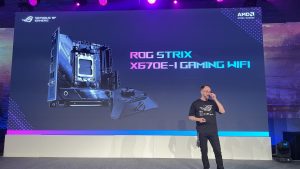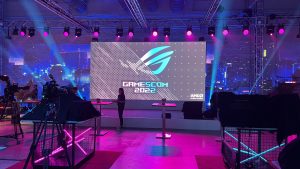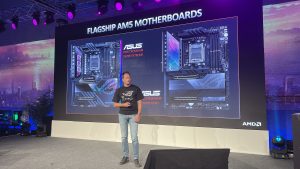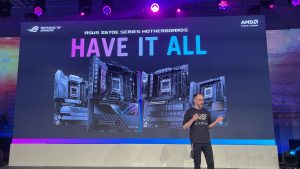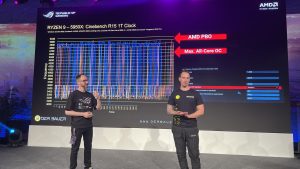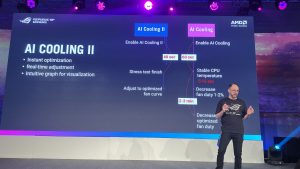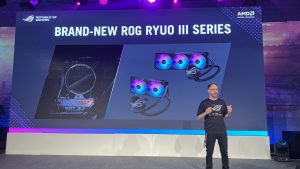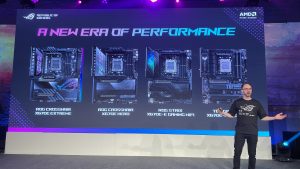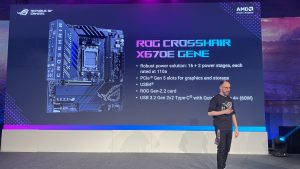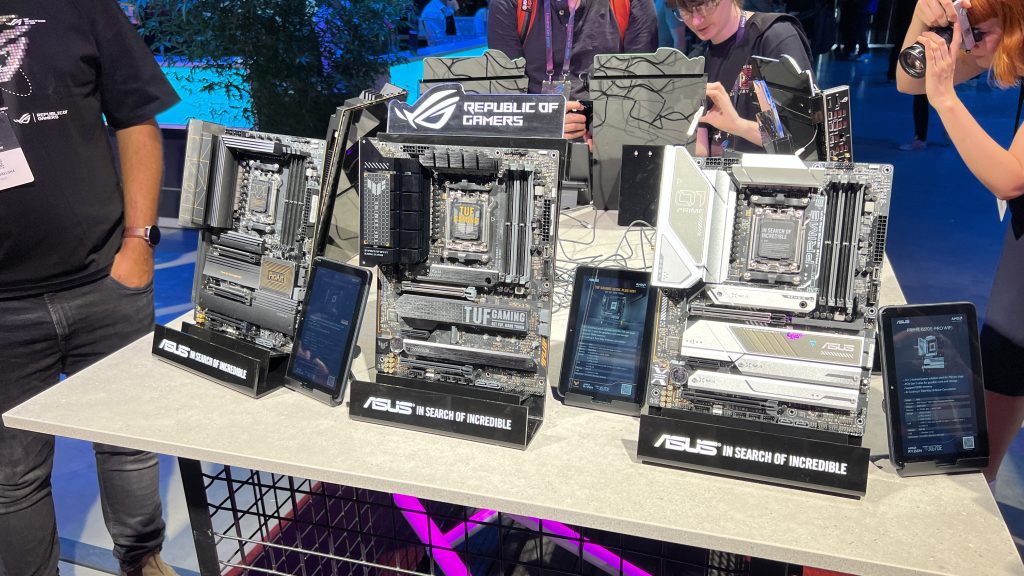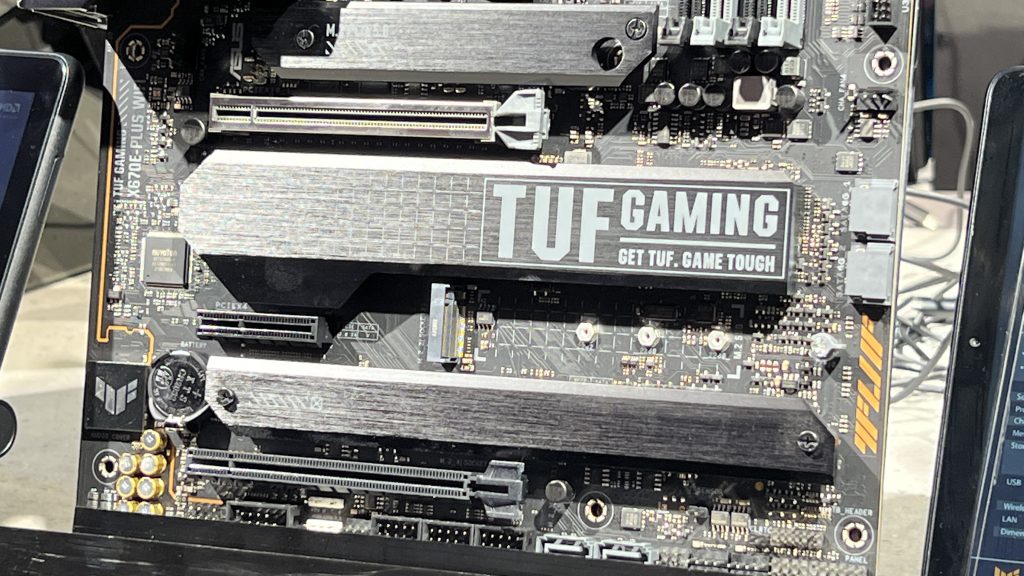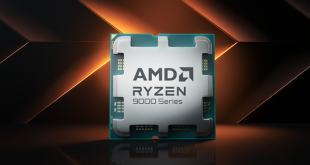At Gamescom this week, we swung by Asus's massive ROG booth to get the low-down on upcoming hardware. AMD is currently gearing up to launch its Ryzen 7000 series processors soon, and motherboard makers are beginning to show off what they'll have available at launch. At the event, we got to see the first full set of Asus motherboards for AMD's next-gen CPUs.
With Ryzen 7000, AMD is using a different pin layout and a new IHS design. The impact this has on the motherboard side of things is an odd looking socket split into two sections, with very little crossing over the centre. From what we've heard, power management was a major focus when designing the new physical interface.
AMD isn't going to let much be revealed here at Gamescom prior to its own official launch event next week, but at the same time, you can feel inferences leaking in every conversation. While AMD hasn't revealed power draw figures for its new CPUs yet, the stage is being set for Ryzen 7000 to deliver better efficacy compared to ‘the competition'. AMD is also looking to improve DDR5 memory support and enable lower latencies.
All this talk of breakthrough levels of performance is all well and good, but will any of these solutions be affordable for the average KitGuru reader?
Asus has two distinct offerings with its new AM5 motherboard range. Products with an X670E listing are aimed at the high-end enthusiast market and will be packed with features. The X670 variants will get the job done at a cheaper price. For now, we've only seen X670E and X670 motherboards announced, but more affordable B650 motherboards should come later down the line.
For now, the main focus at Asus's booth was on the following motherboard variants:
- ROG Crosshair X670E Extreme
- ROG Crosshair X670E Hero
- ROG Strix X670E-E Gaming WiFi
- ROG Crosshair X670E Gene in mATX
- ROG Strix X670E-I Gaming WiFi
One thing you notice immediately, on any of these designs, are the rather imposing heatsinks for M.2 Gen 5 drives:
The VRM backplates are larger and more solid, so it will be interesting to see if they perform better than some we’ve seen in the past – where the designs seemed to be built around aesthetics more than thermodynamics. Connectivity was also a big theme for ASUS, and they pointed out the built-in USB4 pre-mounted I/Os on the back of the boards.
There was a discussion about how enthusiasts would traditionally look for a really decent board for less than £200. At the same time, every range of processors always has a ‘hero’ product – which offers an unusually good combination of computing performance and fair pricing. We’ve been told that this will be a Ryzen 7 processor this time around. Given the lack of a 7800 listing in the initial leaks, we’re wondering if some of the 7700X processors might be packing some extra performance that will only come through when the clocks/cooling are right.
Also on hand was der8auer, mainly to highlight the fact that many of the new ASUS motherboards would support the Dynamic OC switching that was only previously seen on the Dark Hero X570 board. We were also told that after a lot of work on the new AMD packages over the past month, delidding will be possible, but it seems to be a tougher task for the new Ryzen chips compared to the old designs. The process described to us would not be for amateurs looking for a quick OC thrill.
To support overclocking with the new AMD processors, ASUS has been working on Ai Cooling II – which it claims can provide instant optimisation and real-time adjustment. The initial stress test needed to set the parameters for the software happens much quicker. Fan speeds are then lowered while temps are monitored to find the sweet spot for quiet operation and cooling performance.
ASUS has also begun showing off its new ROG RYOU III AIO liquid cooler, which has been redesigned to enable the best possible performance on AMD's next-gen processors. The baseplate covers 32% more surface area than the previous generation, and the connecting tubes have increased from 5mm to 7mm, allowing more coolant to flow through. According to Asus, in a 100W test environment, the new design should outperform the old one by at least 2 degrees Celsius.
That's all we have from the Asus booth for now. We'll be getting a lot more AMD CPU and motherboard news next week during AMD's Ryzen launch event.
Discuss on our Facebook page, HERE.
KitGuru Says: Are you planning on upgrading to Ryzen 7000? Will you be looking to get an X670E or X670 motherboard at launch? Or will you be waiting for more affordable B650 options later down the line?
 KitGuru KitGuru.net – Tech News | Hardware News | Hardware Reviews | IOS | Mobile | Gaming | Graphics Cards
KitGuru KitGuru.net – Tech News | Hardware News | Hardware Reviews | IOS | Mobile | Gaming | Graphics Cards


